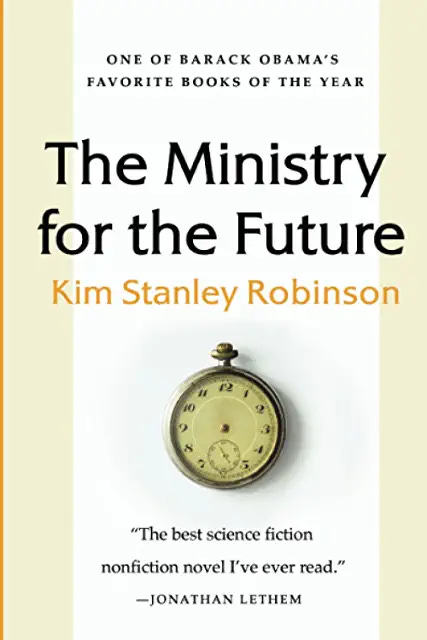While Shapiro covers the Senate’s response to the Trump administration in chronological order, somehow his book reads as a horror story that continues devolving until the insurrectionist denouement.
Fewer presidencies have resulted in more controversy than that of Donald Trump. From firing the FBI director and mischaracterizing the Mueller Report, to seating three Supreme Court justices and surviving two impeachments, Trump survived scandal after scandal.
How a president can withstand such devastating derelictions of duty is the subject of Ira Shapiro’s new book, The Betrayal: How Mitch McConnell and the Senate Republicans Abandoned America, where Shapiro makes the case that McConnell aided and abetted the Trump presidency to the bitter end.
Shapiro is uniquely positioned to write about McConnell’s leadership after spending more than a decade working in senior positions in the U.S. Senate as well as serving as Bill Clinton’s chief trade negotiator with Canada and Japan. Overall, Shapiro spent 45 years in Washington focusing on international trade and national politics.
While Shapiro covers the Senate’s response to the Trump administration in chronological order, somehow his book reads as a horror story that continues devolving until the insurrectionist denouement.
Shapiro has written two other books about the Senate, but in an interview with The Blueprint, he explained what sets The Betrayal apart from the others.
The idea for The Betrayal came months before the Jan. 6 insurrection, during the summer of 2020. During this time, Shapiro was calling for governors to take the lead in forcing Trump to resign, referring to the former Trump Steaks creator as “an unhinged president during a pandemic,” who was spewing misinformation, rallying Republican governors against Blue State governors, and ignoring the experts on COVID-19.
But for Shapiro, there was something even more worrisome at hand: Trump was signalling he wasn’t going to respect the results of the election.
“I think the Trump presidency was a catastrophe for the country [but] the catastrophic failure of government was the Senate,” Shapiro said. “They’re the ones who were supposed to check the president.”
While the Senate’s purpose has always been to keep checks and balances on the presidency, McConnell has weaponized the institution to protect the Republican party and its president at all costs.
“Most senators show a willingness to balance their commitment to the party with their own independent judgment,” Shapiro noted, adding their six-year terms provide senators with more independence than members of Congress who serve for two years at a time.
Shapiro’s book begins with three distinct quotes, but for this reviewer, the most powerful of all came from George Ball in 1964: “He who rides the tiger cannot choose where he dismounts.”
The Betrayal captures the highs and lows of McConnell’s career, with Shapiro recognizing that few political figures have had such a significant impact on American politics as the current Senate Minority Leader.
But that legacy, Shapiro explains, is mired by a dereliction of duty and an underestimation of Trump’s depravity. Calling McConnell “an exceptionally skillful politician [and] a master strategist,” he says McConnell has been undeniably effective at accomplishing his political goals. Unfortunately, Shapiro added, those accomplishments have been to his personal benefit and Republican power, “at a great cost to the Senate, the Supreme Court, and the United States as a nation.”
While Shapiro condemns the actions of the insurrectionists on Jan. 6, he recognizes that many of them believed they were doing something patriotic simply because their president asked them to.
The Betrayal concludes in the aftermath of Jan. 6, with McConnell speaking out vehemently against Trump in public but voting to acquit the president when push comes to shove. For Shapiro, the insurrection only strengthened his argument, noting that Republican senators couldn’t bring themselves to convict Trump even after their lives were put in danger by the domestic terrorists incited by their president.
Ending the filibuster and a return to governing with conscience
Over the years, the filibuster has become one of McConnell’s greatest political weapons. By requiring 60 votes to end debate, McConnell has prevented legislation on voting rights, pandemic supports, and even a Supreme Court Justice nominee’s confirmation in 2016.
Now, Shapiro says, is the time to get rid of the filibuster, saying the tool has become “corrupted over time.”
“I grew up at a time in the Senate working there when filibusters, we like to say, were real but rare,” he said.
While many pundits fear that ending the filibuster could backfire on Democrats if Trump wins a second term in 2024, Shapiro believes the only way to stop them is “with some people of conscience.”
“If you have an institution that’s blocking government action, year after year, that’s not a workable institution,” he explained.
In his book, Shapiro referred to Supreme Court Justice Amy Coney Barrett’s confirmation—which took place after millions of Americans had already voted in the 2020 Presidential election—as the Banana Republic Confirmation.
“I found it to be a terrible act and shockingly disconnected from anything resembling our democracy,” Shapiro told me. While he explained that McConnell’s blocking of Merrick Garland to the Supreme Court was an act of unprecedented hardball, arguably, at least the voters had some say in deciding the next justice. “In this case, [McConnell] took that away from the voters, ramming through a confirmation eight days before election day, after 50 million people had already voted,” he said.
Shapiro said that after finishing his second book on the Senate in 2018, he felt a moderate and cautious sense of optimism that Congress could rise to the challenges posed by Trump. Led by the political independence of Republicans like Jeff Flake, Bob Corker, and the late John McCain, Shapiro believed there was a core group of Republicans—that occasionally included Susan Collins and Lisa Murkowski—who would be enough to keep Trump in check. That optimism, while admittedly unjustified, served as the blueprint for The Betrayal.
“One thing I learned was that I had an idealized view of the Senate and Senators,” Shapiro told me. “Based on my experience and what I had seen, heard, and learned, I would have thought if things got bad enough, they would step up. And that was wrong.”
Ultimately, Shapiro says he wrote The Betrayal in an effort to play some small part in the fight for democracy. In a plea to the GOP, Shapiro urged Republicans to strive to be their best selves rather than do things they consciously know are both wrong and anti-democratic.
Will they heed Shapiro’s call? Only time will tell.












